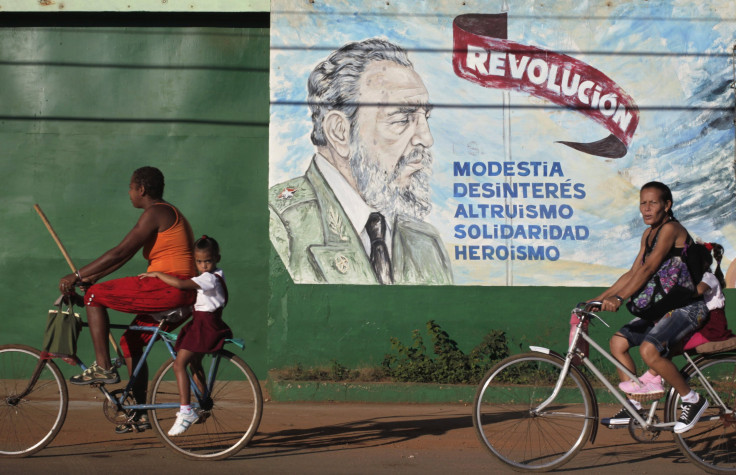
Ignacio Ramonet, a Spanish journalist and biographer of Fidel Castro, published in La Jornada on Thursday an account of his meeting with the Cuban leader on Dec. 13. That meeting had made news when Ramonet told reporters that he’d found Castro -- suspected by many to be in poor health after he gave no public comment on the death of longtime friend Nelson Mandela -- to be healthy and mentally sharp. In his account, drawn entirely from memory, he writes that Castro is doing “stupendously well” and that the revolutionary leader and former head of Cuban government told him he was “finishing the draft of an article” on Mandela, which has since been published on state media website Cubadebate.
The conversation between the two appears to have ranged from the theoretical (the prevalence of the leftist general-president figure in Latin American politics) to the scientific (mulberry trees) to Castro’s relationship with late Venezuelan president Hugo Chávez, of whom Ramonet has also published a biography. “[Chávez] told me,” Ramonet comments to Castro, “that he rather felt that you were giving him a test” when the two leaders first met in 1994 -- delighting Castro, who replies that “It’s true! I wanted to know everything about him. And he impressed me … with his culture, his sagacity, his political intelligence, his Bolivarian vision, his gentility, his humor … he had it all! I realized that I was in front of a giant in a line of the best leaders in Latin American history.”
“He knew how to educate an entire generation of young leaders,” Castro told Ramonet. “At his side they acquired a solid political education, which turned out to be fundamental after Chávez’s death for the continuation of the Bolivarian Revolution.” Among those young leaders: Nicolás Maduro (“with his firmness and lucidity”) and a host of other top United Socialist Party lawmakers including Foreign Affairs Minister Elías Jaua and National Assembly head Diosdado Cabello, all of whom were “educated, sometimes from a very young age, by Chávez,” according to Castro.
Ramonet also writes that Castro appears to have continued cultivating an interest in botany, as he showed off a jar full of mulberry seeds. “A very generous tree which can provide infinite benefits and whose leaves serve as food for silkworms … I’m waiting for a professor who is a mulberry specialist to come here in a bit to talk about this.”
© 2025 Latin Times. All rights reserved. Do not reproduce without permission.





